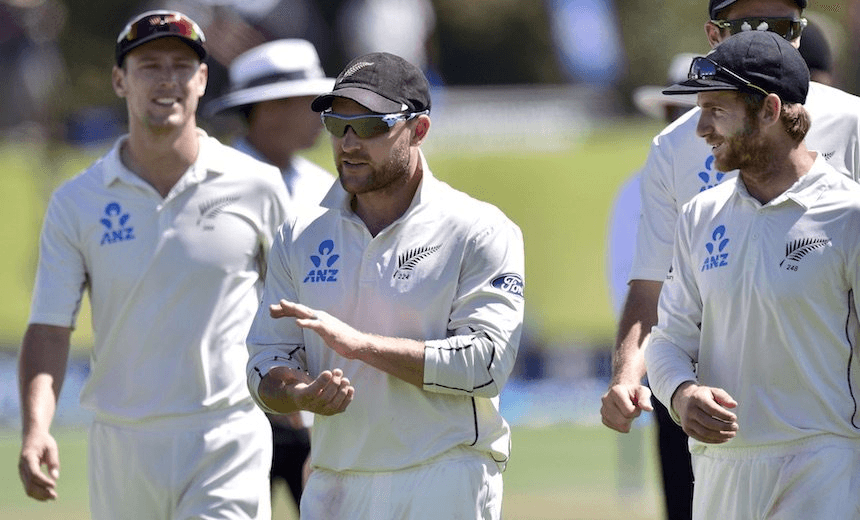“Who the hell does Brendon McCullum think he is?” asked our recent mildly inflammatory headline to a review of the former Black Caps captain’s new autobiography. As we enter our first summer of cricket in 14 years without him, Dan Luoni asks: who the hell do we think Brendon McCullum is?
That Brendon McCullum has his share of detractors shouldn’t come as a surprise. The whole captaincy wrangle was a murky old business, and given Geoffrey Boycott still has a career in commentary it’s clear some people’s idea of cricket is still more aligned to cucumber sandwiches and self-flagellation than DLF Maximums and switch hits.
Equally unsurprising is the level of passion of McCullum still inspires in his hard core of fans. Scoring New Zealand’s first test match triple hundred, as well as the fastest ever test century and a 73-ball 158 not out in the first ever IPL match will do that.
In his review of McCullum’s new autobiography Declared Brian Turner pitches his tent firmly in the former camp. He takes umbrage with (among other things) the captain’s cliché-riddled vocabulary: his tendency to “constantly refer to the need to get the best out of the ‘boys’ and ‘girls’, of the importance of creating the right culture and environment, getting buy-in, building a team-first attitude”. BMac did this with a “swingeing certitude”.
All of these points are absolutely correct and all of them willfully ignore the bigger picture. BMac might have revelled in cliché but he also lived the clichés. The boys and girls that he really got the best out of are New Zealand’s next generation of cricketers. He shaped a culture that loved cricket. Brendon McCullum’s real legacy is that he made cricket fun again.
Pre-BMac the Black Caps were known around world cricket as everybody’s favourite semifinalists. In my cricket-watching life New Zealand’s two long term-captains were Stephen Fleming, who scrapped and scraped his way to the benchmark test average of 40 in his final test match, and Daniel Vettori, who’s won more Spirit of Cricket awards than he’s had spectacles sponsorships.
Both were very good cricketers and great servants of the country. Kane Williamson, McCullum’s heir to the captaincy throne, is the first sentient batting robot to represent New Zealand, on course to break every record in the book. But none of these men were or are Brendon McCullum.
This is a guy who charged Dale Steyn and Brett Lee. One who got his head behind the line to Sean Tait and got pinged in the arm by Mitchell Johnston only to come back for more, who smoked durrys in the toilet with the caterers during the final over of the World Cup semifinal.
He asked New Zealand to dream big. In doing so we shed the tag of everybody’s favourite semifinalist. Regardless of the outcome of the final, under McCullum the New Zealand cricket team and its fans (who there were about 3 million more of at the time) went somewhere that they’d never been before.
I remember being at Cornwall Cricket Club after the World Cup final: every kid wanted to be BMac. Not all of them could match the ability or bravado, but they sure as hell could convince their parents to get them the same Puma bat their hero wielded. He brought the kids along for the journey.
People who were unmoved by the splendour of a Mark Richardson blockathon, who maybe failed to appreciate the subtle difference between a 83km and 87km Dan Vettori delivery, could love the charge and slash of McCullum’s performances. He changed the picture of cricket in the country: suddenly it was acrobatic, it was visceral, it was hopeful. Most of all it was fun.
Ultimately, it’s those kids that BMac brought along with him that matter. It’s them who will carry the torch for the next 20-25 years. It was the culture that he created, even if just for a little while, that he’ll be remembered by. A culture that loves cricket for the sheer joy of it. That sings along with Corey, Corey, Corey, Corey, Coreeeeey Anderson. That throws itself at picket fences with the same fervour as Richie McCaw entering the breakdown. One that expects, rather than just wants, big things.

